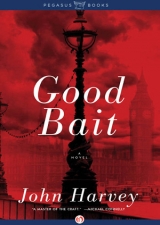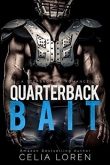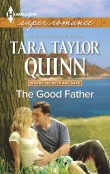
Текст книги "Good Bait"
Автор книги: John Harvey
Жанр:
Триллеры
сообщить о нарушении
Текущая страница: 2 (всего у книги 19 страниц)
4
Cordon turned at the edge of the hill, salt from the night air bright on his tongue, and looked back across the bay. Early January and cold as a witch’s tit. A forecast of more snow. What kind of a happy new year was that?
Beyond the lights of the far town it was just possible to make out St Michael’s Mount, a hump of black against the blackness of the sea. Amongst the huddle of houses to his right, a light flickered and then went out. Collar up, he turned again and continued to climb, cobbled stone beneath his feet, key already in his hand.
He’d bought this place, a converted sail loft in Newlyn, before prices had spiralled out of control. Now all around him were holiday lets and second homes, kids with names like Tristan and Toby and people carriers with customised number plates blocking the winding lanes.
Not that he was quick to judge.
A long room with a kitchen at one end and a bed at the other, lavatory and bathroom partitioned off, it had been somewhere to move into, move on from, part of the plan. Chief inspector in another five or six years, superintendent by the time he was fifty. One of those nice old Georgian places in Penzance, down near Penlee House, that was where he’d seen himself by then, what he’d fancied. Till some bastard pulled away the ladder and, perforce, he’d stayed put.
His own bloody intransigence hadn’t helped.
Passed over, these last few years he’d been stationed in the middle of nowhere cosseting a team of five: two young PCs, wet behind the ears, a sergeant close to his own age, prone to outbursts of gout, and a pair of community support officers who needed all the support they could get. Neighbourhood policing, that’s what it was called. Low-level drug use, common-or-garden domestic disputes and routine drunk and disorderlies; inebriated yahoos with public-school accents down from Oxbridge or London for the surf; a little casual breaking and entering. Other things.
In the past twelve months, there’d been several cases of sheep rustling, but more recently even the sheep were getting thinner, barely meat enough on their bones to warrant all that up and down through the heather. The only reason Cordon hadn’t jacked it in and walked away before his thirty years were up, he hadn’t wanted to give his bosses the satisfaction.
Besides, there wasn’t so very long now to go.
So he reported for duty, clocked in, clocked off, kept Home Office directives piled high in a corner until there were enough for a decent bonfire, happy enough to let the powers that be forget he was there.
At home, he sat with his feet up, reading, listening to music, rationing the Scotch. A mishmash, where the music was concerned: Mingus with Eric Dolphy at Cornell; Bach Partitasfor solo violin; some Ellington; some blues; Britten’s String Quartet in C. And the reading? Trollope, his current favourite. The Way We Live Now. There was a man who knew a thing or two.
Opposite the one comfortable chair was a television set with its screen turned to the wall. Occasionally, as if to remind himself of the world beyond his own, he would swivel it round and watch the news. Bankers and captains of failed industries slinking wantonly into the shelter of their offshore accounts with their air-brushed mistresses or surgically reconstructed wives; men whose pensions would bring them more in a year than many of the men Cordon knew would earn in a lifetime. Trollope all over again. We never learned.
Hungry, he took the remaining half of pork pie from the fridge. He was just levering the cap from a bottle of Tribute ale, when the mobile sounded from his coat pocket across the room.
The custody sergeant in Penzance. ‘Woman here, sir. Bit of a state. Half out of her head on drink and I’d not like to say what else. Not making a lot of sense.’
‘My concern?’
‘Asking for you, sir, that’s all. Thought you’d like to know.’
‘She have a name?’
‘Carlin.’
Cordon stopped his breath. ‘Rose? Rose Carlin?’
‘Maxine.’
‘You sure it’s not Rose? Or Letitia. She could be calling herself that.’
‘Maxine, that’s what she says. Maxine.’
Cordon looked at his watch. A quick drive eastwards around the bay. Newlyn to Penzance. His car parked at the bottom of the hill. ‘I’ll be right there.’ Pressing the cap firmly back on to the bottle, he took a healthy bite out of the pie and reached for his coat.
The custody sergeant pushed the paper he was reading aside.
‘Sorry to call you out, sir. Only way to shut her up.’ He nodded in the direction of the cells.
‘She’s under arrest?’
‘There for her own safety. Thought she might sleep it off.’
‘Be suing you, next thing you know, false imprisonment.’
The sergeant made a face. ‘Human bloody Rights Act, like as not succeed.’
The door to the cell was unlocked, the air inside vinegary with disinfectant. Maxine Carlin lay curled in one corner, face to the wall. She turned only slowly when he spoke her name.
One side of her face was pinched tight, the corner of her mouth aslant; a scab above the right eye had been picked away down to the pink skin beneath. He could smell the drink on her from where he stood.
‘You wanted to see me?’
‘Took your bastard time!’
‘Wanted to talk?’
‘Not here.’
She could only walk unsteadily at first, ignoring Cordon’s proffered hand. Once they had reached the car, she leaned against the roof until her breathing had become more regular and her head had begun to clear. He drove south past Morrab Gardens and parked along the West Promenade, windows wound down, waiting while, painstakingly, she rolled a cigarette. Faint, under the occasional clamour of gulls, he could hear the rhythmic shushing of pebbles as the tide moved them up and back along the beach.
‘It’s about Letitia?’ Cordon asked.
‘That stupid bloody name!’
‘Rose, then. What you wanted to see me for, it’s about your daughter? About Rose?’
‘She’s gone missing, i’n’t she?’
Missing, Cordon thought: missing from where? He hadn’t clapped eyes on her in months, years.
‘Her father, he rung me. She was supposed to be going down to see him, stay for a bit. Hastings, where he’s got some excuse for a bloody bookshop. Down from London. Never turned up. Never showed.’
‘Changed her mind, perhaps.’
‘Called him, didn’t she, right before she left. Charing something?’
‘Charing Cross?’
‘Maybe. I dunno. Meet the train, she told him. Waited half the day. Her mobile switched off each time he tried. Got on to me in the end, see if I knew anything. I didn’t know a bloody thing.’ She flicked the cigarette away in a shower of sparks. ‘Since she moved up there, London, we’ve not exactly kept in touch. Not like when she was here. Used to be, we was more like sisters. These last few years, never tells me a thing. More secrets’n the Queen of bloody Sheba. Don’t even know where’s she’s living. Not properly. Never been there, never been asked.’
Cordon nodded. ‘All this was when? When she was supposed to meet her father?’
‘Last week. Beginnin’ of last week. Right after New Year.’ She rubbed a cracked fingernail against the corner of her eye.
‘The two of them, they were close then?’
‘When it suited him.’
‘But she did see him?’
‘Like I say, when it suited him, miserable bastard.’
‘And this time, no explanation, she just never arrived?’
‘Christ! Didn’t I just bloody say so?’
‘You’ve tried contacting her?’
‘Much good it did me. Old mobile number, that’s all I had. Waste of bleedin’ time.’
‘And you’ve not got an address?’
‘Just this. Here.’ Maxine started scrabbling in her bag. ‘Place she used to work. Housekeepin’, somethin’ like that. Never said too much about it.’
She pushed a piece of paper into his hand. A street name and house number in London, N16.
‘And this was when? When she was working here?’
‘A year back, got to be. Maybe more. Something though, isn’t it? If you’re lookin’. Somewhere to start.’
Cordon sighed and folded the paper carefully into his top pocket. She’d been missing, if missing she was, for just a week, not yet quite two. No time, no time at all. The air through the open windows was cold and getting colder, a breeze lifting off the sea.
‘You’ll do what you can? To find her?’
Cordon turned away. The lights farther around the bay suggested home, a glass of whisky and a warm bed.
‘You will?’
‘I could make a few inquiries from here. Get somebody to go round, maybe, check that old address. Beyond that, I don’t think there’s a great deal I can do. Not until we know more. Grown woman, independent. No suggestion of foul play. She’s probably fine. Just changed her mind. Last moment. It happens. Went somewhere else instead. Friends.’
‘You’ll do fuck all.’
Down on the beach a dog was barking excitedly, chasing shadows across the dark.
‘I’ll do what I can.’
‘Fuck all. You’ll do fuck all.’
Cordon sighed.
‘You’re all the fucking same.’
Men, he supposed she meant. Men.
‘Don’t hear nothin’ from her, I’ll go up meself. Thought you might bloody help, that’s all.’ She levered open the door. ‘She thought a lot of you, fuck knows why.’
Awkward, she swung her legs round and ducked her head.
‘Wait up,’ Cordon said. ‘I’ll give you a lift.’
She chose not to hear. Like someone walking on coals, she made her way across the street and continued close to the wall. Cordon started after her, but changed his mind. At the edge of the promenade the nubbed paint of the railings was uneven and cold against his hand. She thought a lot of you. Out over the sea, the moon showed for a moment from behind a bulwark of cloud, then was gone.
5
The first time he had seen Rose Carlin – Letitia – she had been sitting cross-legged on an unmade bed, the mattress stained with shit smears and rusted blood, eyes winced tight as she injected heroin into the vein at the back of her left knee.
No one had answered when he’d knocked on the door. Himself and four other officers rousting all the houses on the street, a favour passed down from on high. Boarded up most of them, bulldozers on their way, a complex of two– and three-bedroom apartments that would rise up from the detritus of what had once been two-up and two-down family homes. Harbour View. Even the name was a lie.
The only other person in the room, a young male of eighteen or so, sat on the floor, legs outstretched, head angled back against the wall, a leather belt tied off around his upper arm. Cordon knew him from various squats around the town and the toilets near the bus station where he’d jack off unhappy travellers for the price of a half-gram wrap or a pack of cigarettes. Billy Mullins, youngest of five: one in the army, two doing time, another – the black sheep – working eight to five as a council gardener, kids of his own.
‘Right.’ Cordon kicked his toe against the underside of the youth’s worn trainers and hauled him to his feet. ‘Now then, Billy, what’s it to be?’
Mullins blinked at him once and his head lolled down towards his chest.
Christ, Cordon thought, I don’t have time for this. He dragged a straight-backed chair across with his foot and sat Mullins down on it hard.
‘Possession, is it? Intent to supply?’
‘Fuck off,’ Mullins said, but his heart wasn’t in it.
Behind them, a sigh slipped from the girl’s mouth like air escaping from a balloon, and she slumped sideways on the bed.
‘New girlfriend, Billy?’
‘What’s it to you?’
Her arms were thin, barely flesh on bone, breasts that seemed to belong to a body other than her own. He could have encompassed her thigh, almost, with the span of his hand. There were used condoms, two of them, close by on the floor: Cordon supposed he should be grateful for that at least.
‘How old is she?’
‘How should I know?’
‘Come on, Billy. Fourteen? Fifteen? Younger?’
‘Old enough to fuck.’
Cordon kicked the chair from under him and he went sprawling, striking his head against the skirting. Bruise like a blackened egg, Cordon thought, come morning; some smart young duty solicitor waving the Polaroids around like they were Get Out of Jail Free cards.
He helped Mullins to his feet, read him the riot act, watched as he bundled together his few things before skedaddling down the stairs. The girl dressed slowly, as if dazed, as if everything that touched her skin caused her pain. When he reached out a hand to help, she pulled away.
He took her to a cafe just beyond the street’s end, the girl walking half a pace behind. When he asked her what she wanted, she made no reply, so he ordered her a mug of tea and a bacon roll and when she’d wolfed that down he ordered the same again. Dredging up a smile, she bummed a cigarette from someone at the next table. She still hadn’t looked Cordon square in the eye.
‘Known him long?’
‘Who?’
‘Billy.’
She wafted smoke away from her face. ‘He i’n’t so bad. Not so bad as some.’
‘He know how old you are?’
‘How old am I?’
Cordon shrugged. ‘Fourteen?’
‘Next birthday.’
Jesus! The word loud inside Cordon’s head. ‘You living at home?’
‘When I can’t find nowhere else to go.’
‘Family?’
‘Mum, sometimes.’
‘Social worker?’
‘Count ’em, shall I? Bastards every one.’ She laughed, showing teeth that were small and sharp. ‘This new un, likes to see me down on my knees, praying God to show me the error of my ways.’ She laughed again and the laughter turned into a fit of coughing. Cordon went to the counter for a glass of water and when he looked back towards the table she’d gone.
She was outside on the pavement, head down, squatting.
‘Thought you were doing a runner,’ Cordon said.
‘Fat chance. Needed a bit of air.’
When she stood, her head came almost level with his shoulder: tall for her age.
‘This social worker, she have a name?’
‘Apart from Fuckface, you mean?’
‘Apart from that.’
She laid a hand on his arm and let it slide down towards his wrist. ‘Look, we could just forget about it, right? No skin off your nose. All the other stuff you must have to do, no sense wastin’ time on me.’ Her fingers were gently stroking the back of his hand. ‘We could go somewhere first if you like.’
Cordon shook her off and stepped away.
The social worker recited the whole sorry tale: Rose’s mother, Maxine, was a registered heroin addict with three children by three different fathers; the two youngest, both boys, had been taken into care when they were seven and five. Rose herself had had periods of temporary fostering, but had been allowed back home when her mother had turned a corner at the beginning of the year.
‘Which particular corner was that?’ Cordon asked.
He nodded towards where Rose sat gouging the dirt from beneath her nails with a paper clip that had fallen from the desk. ‘What’s going to happen now?’
‘I’ll take Rose home. Lay down a few ground rules. Make sure they’re understood.’
‘Ground rules?’
The social worker was getting to her feet. ‘We like to keep families together, Detective Inspector, wherever it’s humanly possible. If you’d care to come along to Rose’s next case conference, I’m sure it can be arranged.’
‘Wouldn’t miss it for the world.’
Of course, he did. As Rose herself had said, all that other stuff he had to do … and one kid among many, what business was it of his? Let Social Services earn their keep as best they could.
If he saw her at all in the next eighteen months, two years, it was a face glimpsed amongst others, a group of girls giggling their way from pub to pub, jousting with some lads down by the harbour where the Scilloniancame into dock, her voice loud and shrill, giving as good as she got, sharp little features fleshing out. Once, someone who might have been her, touting for business along the Promenade, spangled top and skirt up to her behind; before he could make his way along to check it out, a silver Mondeo had pulled in and, after a brief negotiation, whisked her away with a fishtail of wheels.
Then, one summer evening, there she was, arm in arm with a woman dressed just like her, the pair of them parading up Market Jew Street, head to toe in black save the silver rings catching the last of the sun as they walked. Rose’s hair was henna red, her companion’s bright green.
She didn’t just recognise him: she stopped.
‘Cordon, right? Detective somethin’-or-other. The bacon-roll man.’
‘Detective Inspector. And you’re Rose.’
‘Yeah. And this is my mum, Maxine.’
‘Good to meet you,’ he said and held out his hand.
He could see now that she was older, Maxine. Could have passed herself off as an elder sister and on a night out that was probably what she did. Up close, it was the heavy smoker’s lines around the mouth that gave her away, that and the residue of a life hard-lived behind the eyes. What was it? Three kids, two in care. She’d be all of thirty-four, thirty-five.
‘Still a copper, then?’ Rose said.
He nodded.
‘Putting people away.’
‘A few.’
‘My mates.’
‘Maybe.’
She laughed; he remembered the laugh.
‘New leaf, me. Straight an’ narrow.’ She was mocking him with her voice, her eyes. ‘Workin’, too. Caff down the arcade. Evenings. Weekends. Thinkin’ of goin’ to college, right, Mum? Qualifications. NVQs. Veterinary assistant, that’s what I fancy. Somethin’ like that.’
She said the word veterinary as if she were trying it out, each syllable stepping carefully off the tongue.
‘Like animals, then?’ Cordon said.
‘Better’n people. Most people.’
‘Dogs?’
‘Yeah, dogs are all right. Why d’you wanna know?’
‘I’ve got this springer spaniel. Never gets enough exercise. If you want to walk her some time …’
‘How much?’
‘Huh?’
‘For walkin’ her, how much?’
‘I don’t know. A fiver, maybe?’
‘An hour?’
‘I was thinking more, each time you took her out.’
‘Bog off!’ She gripped her mother’s arm tighter and started to walk away.
‘All right, then, five pounds an hour.’
She turned back, grinning. ‘Fifteen minimum.’
Cordon looked at her mother. ‘Strikes a hard bargain.’
‘Likely had to.’
Cordon nodded. ‘Okay, your terms. Agreed. Here …’ He took a card bearing his police details from his pocket and wrote his home address and number on the back.
‘How d’you know I won’t turn up with all me mates when you’re out, break in, rob you blind?’
‘I don’t.’
She took the card without another glance and tucked it out of sight. ‘Come on, Mum. Stand here talkin’ to the likes of him, get ourselves a bad name.’
Cordon watched as, laughing, they headed for the Wetherspoons across the street. College. Qualifications. A proper job. Who was she fooling? Herself? Him? He thought about Rose’s leggings and the long sleeves covering her arms, wondering if she and her mum shared needles at home. Still time to follow in her mother’s footsteps, an addict and a mother just this side of sixteen: next time he saw her on Market Jew Street, she could be pushing a buggy slowly uphill. Who did he think he was, some kind of benefactor? Guardian angel? Come and walk my dog – what kind of bollocks was that?
6
He didn’t see her again for a couple of months. Why did he think he ever would? He was in the middle of scouring out a pan in which he’d been making scrambled eggs – the phone drawing his attention away at the crucial moment and egg adhering to the pan like a second skin – when he glimpsed her face at the small window alongside the door.
‘Come for the dog, okay?’
Cordon wasn’t certain if she was still in her Goth phase or not: most of the henna had gone from her hair, black waistcoat though, white shirt, black jeans, studs and rings; white lipstick, purple fingernails.
‘Fine, as far as I’m concerned. Dog might need some convincing, though. Doesn’t take easily to strangers.’
But even as he spoke the springer was energetically wagging her tail and reaching up to lick the girl’s hand.
‘Yeah,’ she said, with a small look of triumph. ‘See what you mean.’
‘Here,’ Cordon said. ‘Here’s her lead. Take a couple of bin liners for when she does her business. You can let her off past the Tolcarne Inn. That patch of grass by the gallery. Then down on to the beach.’
The girl was crouching down, stroking the dog behind the ears. ‘She have a name?’
‘Kia.’
‘I’ll get some treats for her next time. You can pay me for ’em later. Oh, and yeah, know how long it takes, all the way over here from Penzance?’
‘Twenty minutes?’
‘And the rest. So that’s all included, right? My time.’
She slipped on the lead and the dog half-dragged her towards the door. ‘Hour or so, maybe, first time. You’ll still be here?’
‘Sunday. Bar emergencies, my day off.’
‘Course. No crime of a Sunday. I forgot.’
When they’d gone Cordon took one more look at the pan, shook his head and dumped it in the bin; next time he went into Lidl he’d buy another.
After that, she stopped by most Sundays, a few summer evenings; it got so the springer could recognise her step before Cordon knew she was even close. From time to time, he’d ask her about home or college, just making conversation, little more: blood out of a stone.
One particular evening, a Tuesday, Cordon not long back from sorting a domestic that resulted, as they often did, in both parties turning on him and telling him to fuck off out, she arrived with a bottle of cheap sparkling wine and wearing what Cordon assumed was one of her mother’s cast-offs, either that or a charity shop special, pale purply chenille with a slit skirt and ruched front.
‘What’s this in aid of?’
‘Celebration. My birthday. Sixteen.’ She threw herself in the direction of the small settee. ‘Means I’m legal.’
‘Means you’re sixteen.’
‘Jesus! Don’t you ever lighten up?’
‘Rarely.’
‘Here …’ Holding out the bottle. ‘Help me get this open.’
He found two glasses and poured the wine, getting only a little on the floor as it fizzed up. It tasted like he remembered: cream soda, but cream soda that had turned sour.
‘This really your birthday?’
Dipping her finger into the glass, she made a crossing motion, anointing her breasts through the material of the dress. ‘Christening, too.’
‘How d’you mean?’
‘Got a new name, haven’t I?’
‘Fed up with the old one?’
‘Rose, it’s not me. Not anyone. Anyone I know.’
‘So who are you now?’
‘Letitia.’
Cordon did a small double-take.
‘You like it?’ she asked.
‘Different, I’ll say that for it.’
‘Joy and happiness. What it means. My dad told me.’
Cordon had never heard her mention her father before; hadn’t imagined them to be in touch.
‘He chose it for you?’
‘Sort of.’ Head back, she drank some more wine. ‘Suits me, don’t you think?’
‘Maybe.’
‘My dad thinks so. Looked right into me, didn’t he? Joy and bloody happiness. Saw deep into my soul.’
Cordon waited for the laugh, but it didn’t come.
When she left, just a short while later, there was still a good half a bottle remaining. After due deliberation, Cordon poured it down the sink. When she came back to walk the dog a week or so later, Letitia now, neither of them referred to the occasion at all.
She didn’t mention her father again, either, only the once, Cordon getting on his high horse and launching into something of a lecture about the values of doing a little reading, studying – the kind of thing students were supposed to do, though, from his perspective, it seemed few of them did.
‘Fuck off!’ she said. ‘Stop naggin’ at me all the bloody time. You’re not my bloody father, you know.’
Cordon knew. His own fatherly responsibilities were scattered halfway across the world: a son, Simon, fully grown, who had used his gap year to put ample distance between the pair of them and decided he liked it that way best. The only contact Cordon had – the terse, almost formal requests for funds aside – was the occasional postcard from Santo Domingo, Bogota or La Paz, just letting him know he was still alive. After Bolivia he’d heard nothing, six months of worry, and then the cards had resumed – Pangai, Lautoka, Auckland, Hobart, Sydney. Pins stuck in a notional map, marking a journey that never seemed to point home.
His ex-wife, Judith, Cordon scarcely spoke to at all: a desultory late-night phone call, usually around Christmas time, pauses longer than words.
You’re not my father.
What was he, then? A concerned individual? A friend? Hardly that.
When the other officers, down at the station, got wind of what was happening, there were knowing glances cast in his direction, more than a few lewd remarks. Cordon let them slide.
Then something happened and it all changed.
At four in the morning, on the way home from a night’s clubbing and buoyed up by too many pills and too much alcohol, she let herself into his flat and slipped into his bed, and he pushed her angrily back out. Angry at her presumption: angry at himself for being aroused; knowing, somewhere at the back of his mind and in his groin, he’d always regret an opportunity not taken, little enough love in his life, little enough abandon.
She didn’t come by again.
The dog padded circles around the room and cast wistful glances at the door. Cordon walked her himself till he could find someone else, a young lad whose father worked at the fish dock down by the quay.
All that was a long time ago, over fourteen years.
Letitia moved away.
If he saw her on one of her visits home, it was a nod of the head, a wave, and nothing more. If he bumped into her mother on her own and sober enough to answer, he’d ask how she was.
Now this.
He made the calls as promised the next day, finding himself passed on from person to person, extension to extension, all to no avail. Nothing about a Letitia or Rose Carlin was known, no accident or serious injury reported, no incident in which she had been named. There was no body of a similar age and size waiting to be identified.
He left it alone. Had half a mind to get in touch with Maxine and see what she’d discovered on her trip to London, always supposing she’d gone, but never followed through.
Other matters intervened. A pub brawl that ended with someone being pushed through a sheet of plate glass. State-of-the-art climbing gear stolen from the car park close by the old Carn Galver mine. A break-in at the post office and general store in St Buryan. At a campsite on Trevedra Common a caravan was set alight, the couple sleeping inside lucky to escape with second-degree burns.
Life, such as it was, went on.








